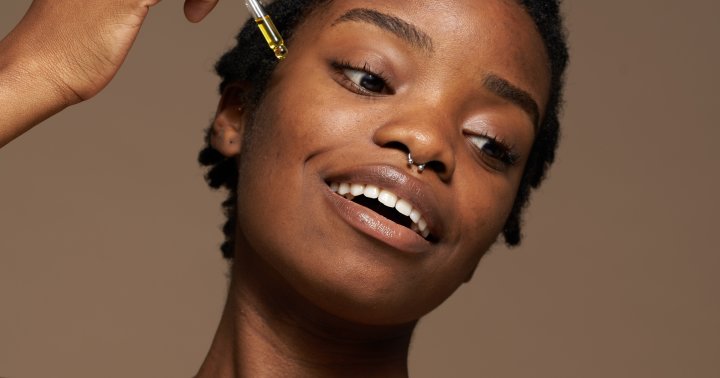This Vitamin Can Treat Dark Spots From The Inside Out
Skin care isn't only topical.

Advertisement
This ad is displayed using third party content and we do not control its accessibility features.

Assistant Beauty & Health Editor
Assistant Beauty & Health Editor
Hannah Frye is the Assistant Beauty Editor at mindbodygreen. She has a B.S. in journalism and a minor in women’s, gender, and queer studies from California Polytechnic State University, San Luis Obispo. Hannah has written across lifestyle sections including health, wellness, sustainability, personal development, and more.
Image by Delmaine Donson / iStock July 15, 2024 It's safe to say most people deal with some form of hyperpigmentation in their lifetime—be it from acne, sun damage, scarring, hormone imbalances, or another cause. Not every type of dark spot should be treated with the same ingredients, but topical vitamin C is generally a good addition to any skin care routine (for not only dark spots but fine lines and wrinkles, too!). However, you might be overlooking one way to use vitamin C for even more skin-balancing benefits—ever thought about ingesting your skin care, too?
How oral vitamin C can help ease dark spots
That said, research shows that higher intakes (i.e., 200 milligrams or more each day) may provide better overall health outcomes—especially in regards to immune function and response2. But back to skin benefits: How does vitamin C help your complexion when ingested?
It's also shown to help manage oxidative stress in cells thanks to its antioxidant properties—this not only supports skin cell health but can help support skin from previous UV damage5 (which often manifests as dark spots).
Major plus: Vitamin C supports collagen production as well. "Vitamin C is a key cofactor in the synthesis of collagen and elastin, [which help] give your skin that plump and youthful appearance," board-certified dermatologist Kiara Barr, M.D., previously told mbg. The nutrient also protects the collagen you already have by working against collagen-degrading enzymes6.
With all of these benefits combined, it's no wonder vitamin C can help ease dark spots from the inside and the outside. However, your body can't make its own vitamin C, which is why it falls into a class of "essential nutrients."
To ensure you're getting enough every day, consider picking up a high-quality vitamin C supplement—start here with a curated list of the 10 best options on the market right now.
The takeaway
There are plenty of causes and treatments for hyperpigmentation, but oral vitamin C is often overlooked.
Studies show this vitamin can support overall skin health, ease oxidative stress, and support collagen production. Want more ways to ease dark spots? Here are 10 more ideas.

 Troov
Troov 
































